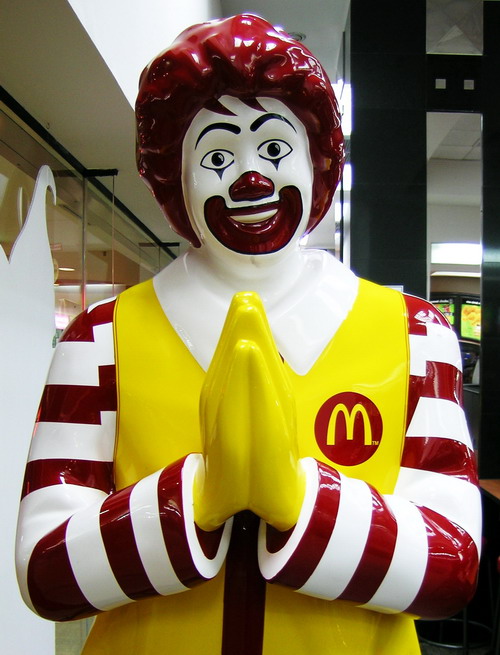Media
Big Gas, Big Fast Food Chains, and Big Government
 PA Independent reports that the largest drillers in the Marcellus Shale sat in on the Rendell and the Conquistadors’ Columbus Day meeting:
PA Independent reports that the largest drillers in the Marcellus Shale sat in on the Rendell and the Conquistadors’ Columbus Day meeting:
Although 75 companies currently operate wells in the Marcellus shale formation, only representatives from four companies – Range Resources, Chesapeake Oil and Gas, Chief Oil and Gas, and Southwest Energy – were included in the meeting.
The gas companies’ representatives declined to speak with the media after the meeting, but House Minority Leader Samuel Smith (R-Jefferson) said the companies continue to be generally supportive of a severance tax.
“These are the big guys, they have always been somewhat in that position,” said Mr. Smith. “From my region, obviously we maintain concerns over the existing industry. The new guys on the block – the big guys – have always indicated they were somewhat willing to absorb a tax.”
Lou D’Amico, president of the Pennsylvania Independent Oil and Gas Association, which represents more than 850 companies operating in the state, said the larger companies are more capable of paying the cost of the tax while smaller companies will be hurt by it.
This might shock some readers, who can’t believe that big drillers would support a severance tax. But if you read my recent commentary on the myths of free market conservatism, you’ll know that big business frequently partners with big government. In fact, Tim Carney explains why big business will work with government in his book Obamanomics—regulations and taxes hurt small businesses much more than their larger competitors:
[H]igher overhead crowds out smaller competitors and prevents startups from entering the industry. When corporations, knowing this, lobby for more regulation of their industry, I call this the Overhead Smash.
And here is another gem from Carney:
Increasing government power always increases lobbyist influence.
Indeed, a recent example would be McDonald’s, which after noting it would cut employees’ health care under the new federal mandate, received a special exemption. And Target, CVS, Home Depot and Blockbuster are also in line for waivers. Think the federal government will, given complete discretionary authority to waive requirements for anyone, treat small businesses equally to corporate giants?